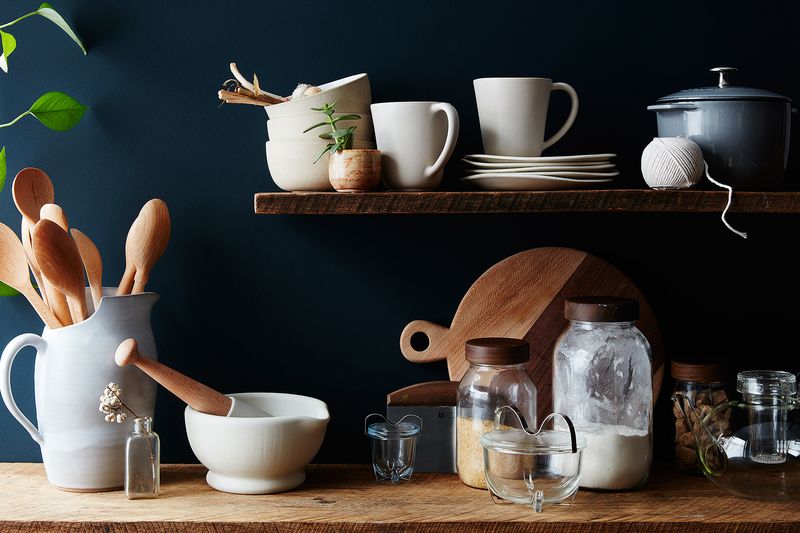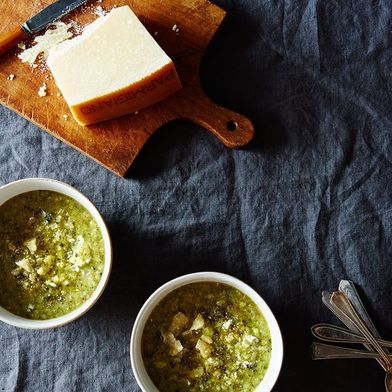When I hear the phrase “a blessing and a curse,” my mind wanders to one place, a perfect distillation of the idiom: the restaurant my parents owned growing up. To come of age in an eatery is, to say the least, a unique experience. It’s romantic and storied and people ask you a million questions about it. Yes, it’s such a lucky, beautiful place to be child, but it’s not all free slices of cake (though there is a lot of that). Instead, you’re exposed from a young age to what it takes people years—and a stint or two in the service industry—to realize: that the restaurant space is one of back-breaking labor, close-to-impossible hours, and thankless favors. I watched my parents, other employees, chefs, and waiters sacrifice weekends, nights, and holidays to shifts. All for the opportunity to feed someone else.
But there’s a reason so many people give their lives over to The Life: Restaurants contain within them a certain brand of magic, especially for kids who learned how to walk holding on to the edges of white tablecloths, or found that locking their sibling in a walk-in freezer was a harsh but untraceable form of torture. With a constant influx of people, ideas, and flavors, there’s an overwhelming number of things to learn in a restaurant.

by Leslie Stephens
It’s a common refrain that everyone, at least once in their life, should work in a restaurant. It builds character, they say, a stint in the service industry, in the fast-paced environment of a fiery kitchen, or at the beck and call of a finicky guest with a complicated order.
But what if you grew up in it? What if waiters and bartenders and pizza makers were your uncles and aunts? An industrial kitchen your living room? A dinner shift your evening chores? I talked to some friends, people whose parents also worked in restaurants (whether on the floor or in the kitchen), about the invaluable lessons they picked up and the habits they still practice. Here’s the list we came up with—we, the resto-tots:
The Importance of Work-Life Balance
Restaurants are frenetic places. There’s always so much to do: a pan to clean, a sauce to finish, a customer to help, a party to plan. It can feel consuming. Infectious, even. Learning to step away, to relish moments apart from the chaos of a dinner service can be difficult but so, so necessary.
Chef Pants Are the Ultimate Style Statement
There’s really nothing cooler than those billowy checkered pants. They may not be form-fitting, but they’re uber-comfortable; plus, workwear is très chic these days! The checkers (or stripes) are graphic and punchy, and there are enough pockets to store a pantry’s worth of items. Chef pants can only be bested by one other stylish, and necessary, kitchen accessory: clogs.

by Valerio Farris
Show Up On Time
Diligence and reliability course through a restaurant. A busy shift is the ultimate exercise in team building and if one person is off, they can ignite a chain reaction with dastardly effects. Showing up on time displays a level of commitment and starts off your shift on a dedicated foot. Before you cook, before you serve, before you clock in, you arrive. Showing up on time is the easiest thing you can do to set yourself up for success.
Always Add Butter
I think this one speaks for itself.
Treat Dishwashers and Chefs With the Same Amount of Respect
There’s an inherent power structure built into the fabric of every restaurant. The executive chef lords over the kitchen, general managers run the front of house. Nonetheless, every job in a restaurant is worthy of respect, of recognition. While certain figures may rank higher, be more visible, and receive more credit, growing up in a restaurant you learn very quickly that behind each success is an entire team making it possible. Making sure you thank, salute, and acknowledge every cog in a machine is an important lesson and extends well beyond the walls of a restaurant.
Always Make Extra Food
This lesson is both practical (no restaurant wants to run out of food in the middle of service) and spiritual (the idea that someone go underfed or worse, unfed, is sacrilegious). For resto-tots, hospitality is the highest virtue, and a failure to please everyone to the best of your ability can feel very, very heavy. Running out of food to feed guests is a perpetual fear of mine. Come over for dinner and there’s bound to be leftovers.
Be Confident With Your Seasoning/With Your Order
We couldn’t agree on which was more important, so we included both. Obviously, confidence is key, for both restauranteur and restaurantee: Salt your dish with a judicious hand, order with the resolution of a final meal. A restaurant’s pace is like normal pace but fast-forwarded x10. There’s little space to falter, to step out of line. Essentially, make a decision and stick to it. Wavering isn’t going to help anyone, especially not yourself.

by Gabriella Gershenson

by Caroline Lange
The Best Way to Impress Someone Is Through Their Stomach
Spend enough time in a restaurant and you’ll see countless things melt: ice cream, sauces, people’s tempers. One thing, however, that you never tire of watching is the look of someone’s face melting as they taste an exceptionally moving dish. People eat out to be surprised and delighted. Watching either (or both!) of these things occur is magical. Food has a power beyond measure.
Sleeping in a Restaurant Booth Can (and Should) Be Done
To be a resto-tot is to be resourceful. Closing time and bedtime don’t always (read: never) match up, so a kid’s gotta do what a kid’s gotta do. For a bit of shut-eye, the plush cushion of a restaurant booth is never a bad idea.
Did you grow up in a restaurant? Share what you learned in the comments below.
(via Food52)





